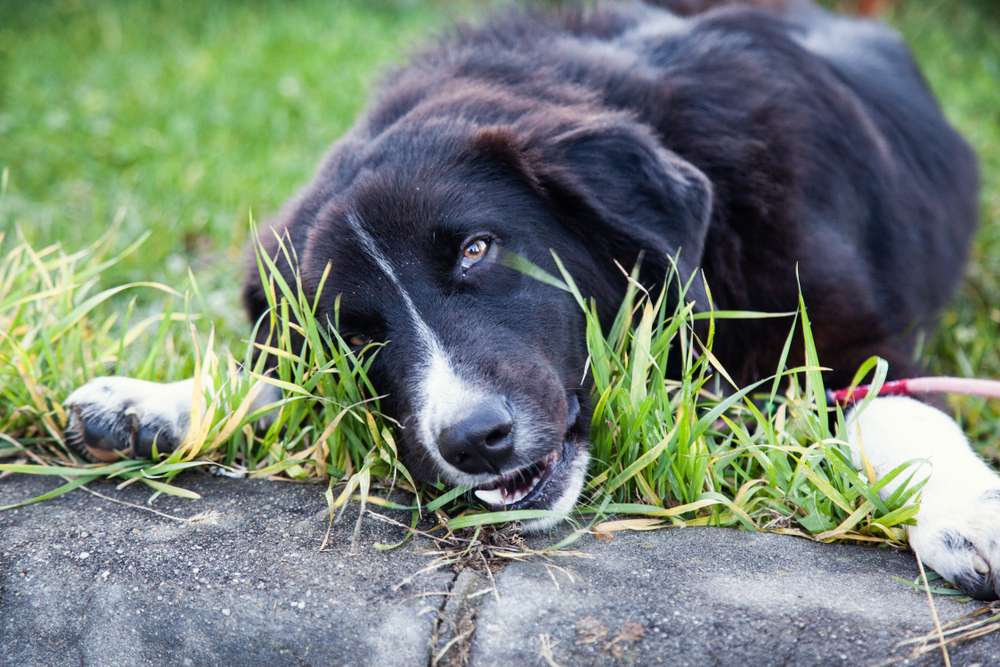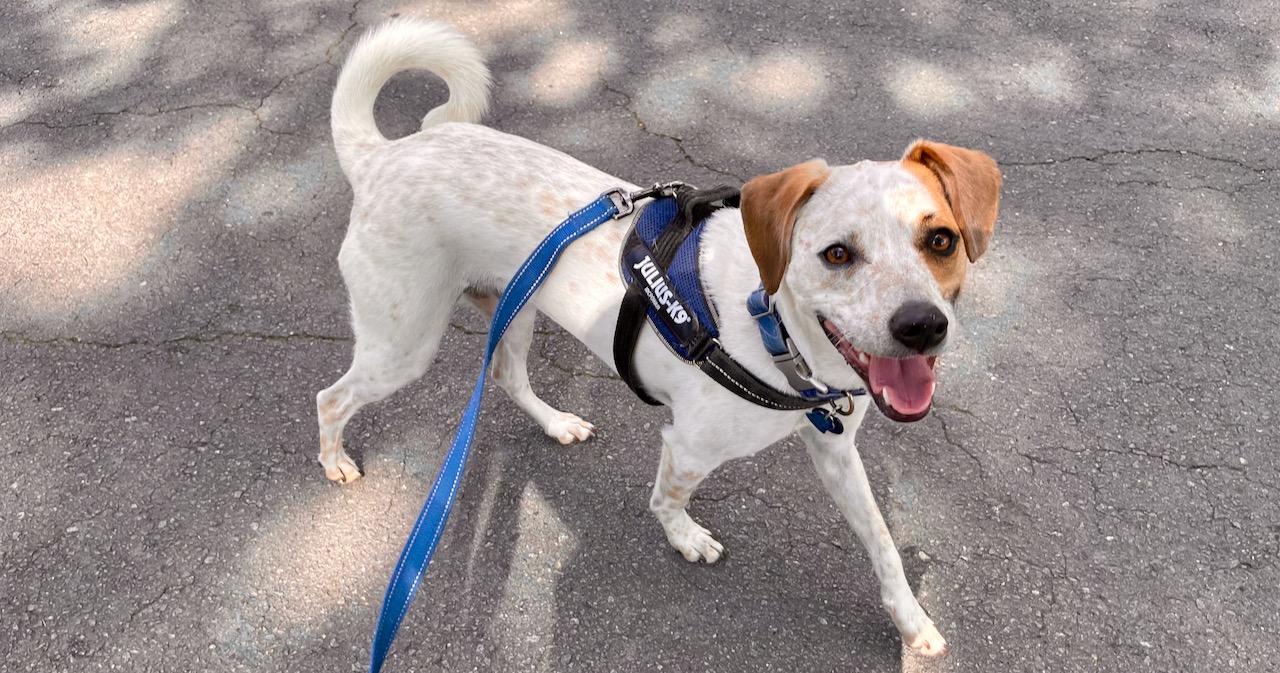If you have a dog you have to know why do dogs eat grass? Dogs are known for their curious behaviour, and one peculiar habit that often leaves pet owners puzzled is their tendency to eat grass. You might have observed your furry companion munching on blades of grass during your daily walks or in your backyard. While it may seem strange or even concerning, there are several reasons why dogs engage in this behaviour. In this article, we’ll explore the various factors that contribute to dogs eating grass, including both natural instincts and potential underlying issues. So, let’s dig deeper and uncover the mystery behind this common canine behaviour.
Why Do Dogs Eat Grass? The Natural Behavior of Dogs
Dogs as Omnivores
As descendants of wolves, dogs have inherited their omnivorous nature, enabling them to thrive on a diverse range of food sources. While dogs primarily rely on commercial dog food or a carefully balanced homemade diet, their instincts drive them to seek variety in their diet, just as their ancestors did in the wild.
The Instinctual Need for Variety
The grass is often a part of the natural environment where dogs would roam freely. In the wild, canines would encounter different plants and herbs, including grass, as they foraged for food. This instinctual need for dietary variety and exploration can manifest itself in domestic dogs, leading them to consume grass as a means to satisfy their natural instincts.
Grass as Part of the Diet
Moreover, grass can provide some nutritional benefits to dogs. It contains essential nutrients like fibre, which aids in digestion and helps regulate bowel movements. Grass can act as a natural cleanser, assisting in the expulsion of hairballs or other indigestible materials from the gastrointestinal tract.
If your dog has digestive issues or eats grass nurture your pet with high-protein natural pet food. Buy our insect-based Dry Kibbles, Munchy Sticks, and Protein Nutri Topper. go to our shop page. Shop Now!
Nutritional Benefits of Grass

Aids in Digestion
Grass can act as a natural laxative, helping to stimulate bowel movements and relieve constipation in dogs. The fibre content in grass adds bulk to the stool, promoting healthy digestion and regularity.
Provides Essential Nutrients
Grass contains certain nutrients that may be beneficial to dogs, including vitamins A and C. These vitamins contribute to a strong immune system and overall well-being.
Acts as a Natural Cleanser
In addition to aiding digestion, grass can also act as a natural cleanser for dogs. When dogs consume grass, it can help to dislodge any debris or foreign objects that may be present in their digestive system. This natural cleansing action can help keep their gastrointestinal tract healthy and functioning properly.
Related: 10 Reasons Why Adopting A Dog Will Change Your Life
Behavioural Reasons
While the natural and nutritional aspects play a role in a dog’s grass-eating behaviour, there are also behavioural reasons to consider.

Boredom and Lack of Stimulation
Dogs are intelligent and active, and they thrive when mentally and physically stimulated. When they are not provided with enough exercise or mental enrichment, they may resort to behaviours like grass-eating as a way to alleviate boredom or release pent-up energy.
Attention-seeking Behavior
Some dogs may learn that when they eat grass, their owners pay attention to them. This can reinforce the behaviour, as dogs seek attention and interaction from their human companions. If a dog realizes that grass-eating leads to attention or a reaction, it may engage in the behaviour more frequently.
Mimicking Other Dogs
Dogs are social animals and often learn from observing and imitating the behaviours of other dogs. If a dog sees another dog eating grass, they may be inclined to try it themselves, even if they don’t have the same underlying reasons for doing so. This mimicking behaviour can contribute to the widespread occurrence of grass-eating among dogs.
Medical Considerations
While grass-eating is generally considered normal behaviour for dogs, there are some medical considerations to be aware of.
Upset Stomach or Digestive Issues
Sometimes, dogs may eat grass as a way to soothe an upset stomach or relieve discomfort. If a dog is experiencing digestive issues or gastrointestinal upset, they may instinctively turn to grass in an attempt to alleviate their symptoms.
Intestinal Parasites
In some cases, dogs may eat grass due to the presence of intestinal parasites. Parasites such as worms can cause discomfort and irritation in a dog’s digestive system, leading them to seek relief by consuming grass.
Pica Disorder
Pica is a disorder characterized by the ingestion of non-food items, including grass. Dogs with pica may have an underlying nutritional deficiency or an obsessive-compulsive tendency that drives them to eat grass and other non-edible substances. If you suspect your dog has pica, it’s important to consult with a veterinarian for a proper diagnosis and appropriate treatment.
Related: Why Your Dog Needs Insect Protein For The Best Nutrition And Health
Grass-Eating and Health Risks
While grass-eating is generally harmless for dogs, there are some potential risks associated with this behaviour.
Toxic Plants and Pesticides
One concern is the possibility of dogs consuming toxic plants along with grass. Some plants can be toxic to dogs and may cause adverse reactions or poisoning if ingested. Additionally, if the grass has been treated with pesticides or other chemicals, it can pose a health risk to dogs.
Potential Choking Hazards
When dogs eat grass, there is a small risk of choking, especially if they consume large amounts or take in long strands of grass. It’s important to supervise your dog while they are grazing on grass and ensure they do not ingest excessive quantities that could lead to choking or blockages.
When to Be Concerned
While occasional grass-eating is generally considered normal, there are instances when you should be concerned and seek veterinary advice.

Frequent or Excessive Grass-Eating
If your dog engages in grass-eating behaviour excessively or on a frequent basis, it may indicate an underlying issue that needs to be addressed. Excessive grass-eating could be a sign of an underlying medical condition, nutritional deficiency, or behavioural problem that requires further investigation.
Signs of Discomfort or Illness
If your dog displays signs of discomfort, such as vomiting, diarrhea, abdominal pain, or changes in appetite or behaviour after eating grass, it is important to consult with a veterinarian. These symptoms could indicate an underlying health issue that needs to be addressed promptly.
Related: The Dos And Don’ts Of Training Your Puppy
Preventive Measures
While you cannot completely eliminate your dog’s grass-eating behaviour, there are preventive measures you can take to minimize the risks and redirect their behaviour.
Providing a Balanced Diet
Ensure that your dog is receiving a well-balanced diet that meets their nutritional needs. A balanced diet can help address any potential nutritional deficiencies that may be driving their grass-eating behaviour.
Ensuring Sufficient Exercise and Mental Stimulation
Engage your dog in regular exercise and provide them with mental stimulation to prevent boredom. A tired and mentally stimulated dog is less likely to resort to grass-eating as a means of alleviating boredom or releasing energy.
Creating a Dog-Friendly Environment
Designate a safe and dog-friendly area in your backyard where your dog can freely explore and graze on grass. This can help satisfy their natural instincts while minimizing the risks associated with toxic plants or pesticides.
Related: Labrador Price In India And Breed Information
How to Change Grass-Eating Habits
If you want to redirect your dog’s grass-eating behaviour, here are some strategies you can try:
Offer Safe Alternatives
Provide your dog with safe and healthy alternatives to grass-eating. This can include offering edible grasses specifically designed for dogs or introducing appropriate chew toys and interactive puzzles that engage their senses and keep them occupied.
Training and Positive Reinforcement
Implement basic obedience training and use positive reinforcement techniques to redirect your dog’s attention away from grass-eating. Reward them with treats, praise, and affection when they engage in desirable behaviours and divert their focus from the grass.
Consultation with a Veterinarian or Animal Behaviorist
If your dog’s grass-eating behaviour persists or is causing concerns, it is advisable to consult with a veterinarian or animal behaviourist. They can evaluate your dog’s overall health, behaviour, and environment to provide tailored guidance and address any underlying issues that may be contributing to the behaviour.
Conclusion
In conclusion, dogs eating grass is a common behaviour with a combination of natural, nutritional, and behavioural factors at play. Grass-eating can be a normal part of a dog’s diet and instinctual need for variety. It can also serve as a means to aid digestion, provide essential nutrients, and satisfy behavioural needs. However, it’s essential to be aware of potential medical issues, toxic plants, and choking hazards associated with grass consumption. By providing a balanced diet, sufficient exercise, mental stimulation, and safe alternatives, you can minimize the risks and redirect your dog’s grass-eating behaviour. Remember to consult a veterinarian or animal behaviourist if you have any concerns or if your dog’s behaviour becomes excessive or problematic.
Related: Chihuahua Price In India And Breed Information
Is it normal for dogs to eat grass?
Yes, grass-eating is a normal behaviour for dogs and can have various reasons, including instinctual needs and nutritional benefits.
Will eating grass make my dog sick?
While occasional grass-eating is unlikely to cause harm, there is a risk of ingesting toxic plants or pesticides. Monitor your dog’s behaviour and contact a vet if you notice any signs of illness.
Can grass-eating be a sign of a medical problem?
Yes, excessive or frequent grass-eating may indicate an underlying medical issue, nutritional deficiency, or behavioural problem. For proper evaluation, consult your veterinarian.
When my dog eats grass, what should I do?
Preventive measures include providing a balanced diet, sufficient exercise, mental stimulation, and creating a dog-friendly environment. Offering safe alternatives and training can help redirect their behaviour.
**Should I be worried if my dog eats grass regularly?
If your dog eats grass regularly but shows no signs of discomfort or illness, there may not be a cause for immediate concern. However, it is still important to monitor their behavior and overall health. Ensure that they have access to a balanced diet, regular exercise, and mental stimulation. If you have any concerns or notice any changes in their behavior or health, it’s always best to consult with a veterinarian for further evaluation and advice.


